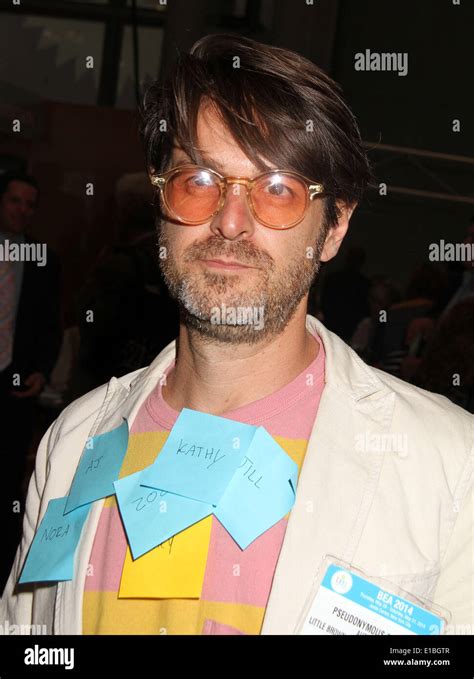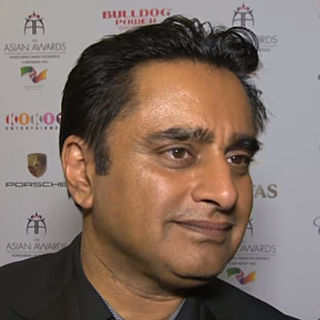A Quote by Alice Sebold
Out loud I said I had two children. Silently I said three. I always felt like apologizing to her for that.
Related Quotes
She didn’t understand why it was happening,” he said. “I had to tell her she would die. Her social worker said I had to tell her. I had to tell her she would die, so I told her she was going to heaven. She asked if I would be there, and I said that I would not, not yet. But eventually, she said, and I promised that yes, of course, very soon. And I told her that in the meantime we had great family up there that would take care of her. And she asked me when I would be there, and I told her soon. Twenty-two years ago.
When John Kennedy was assassinated I was twenty-three, a stockbroker on Wall Street and married, and I never ever thought that politics would be anything that I would be a part of. But I realized that I had to get involved. Then, when Martin Luther King was assassinated and the Vietnam War was raging, I felt that my world was falling apart. I had these two beautiful children - three and one - and I just said, "I have to make it better."
And then she said nothing else, for Henry put his arms around her and kissed her. Kissed her in such a way that she no longer felt plain, or conscious of her hair or the ink spot on her dress or anything but Henry, whom she had always loved. Tears welled up and spilled down her cheeks, and when he drew away, he touched her wet face wonderingly. "Really," he said. "You love me, too, Lottie?
But maybe a man was nothing but a man, which is what Baby Suggs always said. They encouraged you to put some of your weight in their hands and soon as you felt how light and lovely that was, they studied your scars and tribulations, after which they did what he had done: ran her children out and tore up the house. [...] A man ain't nothing but a man,' said Baby Suggs. 'But a son? Well now, that's somebody.
Your face will freeze like that, you know, Kat," Raffin said helpfully to Katsa. "Maybe I should rearrange your face, Raff," said Katsa. "I should like smaller ears," Raffin offered. "Prince Raffin has nice, handsome ears," Helda said, not looking up from her knitting. "As will his children. Your children will have no ears at all, My Lady," she said sternly to Katsa. Katsa stared back at her, flabbergasted. "I believe it's more that her ears won't have children," began Raffin, "which, you'll agree, sounds much less—
Say something in Mandarin,” said Tessa, with a smile. Jem said something that sounded like a lot of breathy vowels and consonants run together, his voice rising and falling melodically: “Ni hen piao liang.” “What did you say?” Tessa was curious. “I said your hair is coming undone — here,” he said, and reached out and tucked an escaping curl back behind her ear. Tessa felt the blood spill hot up into her face, and was glad for the dimness of the carriage. “You have to be careful with it,” he said, taking his hand back, slowly, his fingers lingering against her cheek.
We said we would meet again but we made no arrangements. Not out of any bad feeling between us, but because I felt it had all been said, or not said but understood, and she probably did too. To know she was there was enough, and for her to know I was around was probably too. Sometimes that's all people ever really need. Just to know.
The first of the four noble truths of Buddhism, that there is suffering in life, was enormously important to me. No one had ever said it out loud. That had been my experience, of course, but no one had ever talked about it. I didn't know what to do with all the fear and emotions within, and here was the Buddha saying this truth right out loud.
The first expert said he had attention deficit disorder. The second expert said the first was out of order. One said he was autistic, another that he was artistic. One said he had Tourette's syndrome. One said he had Asperger's syndrome. And one said the problem was that his parents had Munchausen syndrome. Still another said all he needed was a good old-fashioned spanking.
The world taught women nothing skillful and then said her work was valueless. It permitted her no opinions and said she did not know how to think. It forbade her to speak in public and said the sex had no orators. It denied her the schools, and said the sex had no genius. It robbed her of every vestige of responsibility, and then called her weak. It taught her that every pleasure must come as a favor from men and when, to gain it, she decked herself in paint and fine feathers, as she had been taught to do, it called her vain.
I had dinner with Marlene Dietrich in the early 1970s. I went to pick her up and she had someone with her, a dreadful man. He was writing a book about her, and he said to her, 'You're so cold when you perform,' and she said, 'You didn't listen to the voice.' She said the difficulty was to place the voice with the face.
Sometimes we adopt certain beliefs when we're children and use them automatically when we become adults, without ever checking them out against reality. This brings to mind the story of the woman who always cut off the end of the turkey when she put it in the oven. Her daughter asked her why, and her mother responded, "I don't know. My mother always did it." Then she went and asked her mother, who said, "I don't know. My mother always did it." The she went and asked her grandmother, who said, "The oven wasn't big enough."




































